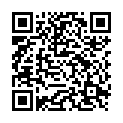|
|
|
| Module code: WIBASc-525-625-FÜ10 |
|
1V+1U (2 hours per week) |
|
3 |
| Semester: 5 |
| Mandatory course: no |
Language of instruction:
English |
Assessment:
Written exam
[updated 13.09.2018]
|
WIBASc-525-625-FÜ10 Industrial Engineering, Bachelor, ASPO 01.10.2013
, semester 5, optional course, course inactive since 08.12.2019
|
30 class hours (= 22.5 clock hours) over a 15-week period.
The total student study time is 90 hours (equivalent to 3 ECTS credits).
There are therefore 67.5 hours available for class preparation and follow-up work and exam preparation.
|
Recommended prerequisites (modules):
None.
|
Recommended as prerequisite for:
|
Module coordinator:
Prof. Dr. Petra Garnjost |
Lecturer:
Prof. Dr. Petra Garnjost
[updated 08.12.2019]
|
Learning outcomes:
After successfully completing this module students will:
_ understand teams as a form of organization and the associated advantages and disadvantages.
_ be able to understand and improve communication structures and decision-making in teams.
_ have the ability to improve efficiency and effectiveness in teams.
_ know how to use _High Diversity_ in teams to their advantage.
_ be able to manage teams in virtual company structures.
_ be able to reflect upon behavior in teams
_ have the prerequisites to use instruments for leading teams.
[updated 13.09.2018]
|
Module content:
Team and project work are not new concepts in entrepreneurial organisation, but in many companies the question still arises as to how team efficiency and effectiveness can be improved. Teams per se are no guarantee for the successful completion of complex tasks, but team members and team leaders can significantly influence team performance. Successful team management is a central management task, especially in an international context.
[updated 13.09.2018]
|
Teaching methods/Media:
Lecture, case studies, role playing
[updated 13.09.2018]
|
Recommended or required reading:
_ Leigh L. Thompson: Making the Team _ A guide for Managers (4th edition, 2010), Pearson Prentice Hall, ISBN- 13: 978 -0-13-186135-0
_ R. Meredith Belbin: The Management of Teams. Why they succeed or fail, (3rd edition 2010) ISBN: 978-1-85 617-807-5
_ Jon R. Katzenbach, Douglas K. Smith: The Wisdom of Teams, the High-Performance Organization, Harvard Business School Press, 1993,
_ As well as a reader on the topic.
[updated 13.09.2018]
|

